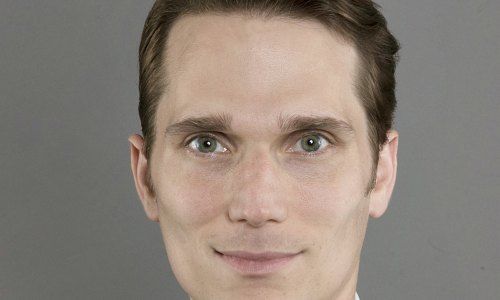Martin Schlegel - Click to enlarge At its meeting of 4 July 2018, the Federal Council appointed Martin Schlegel as the new Alternate Member of the Governing Board of the Swiss National Bank (SNB), following the proposal of the SNB’s Bank Council. He will take up the position of Deputy Head of Department I as of 1 September. Martin Schlegel is currently Head of the SNB’s branch office in Singapore. Having graduated with a master’s degree in economics from the University of Zurich, he went on to receive his Doctorate in Economics from the University of Basel. He joined the SNB in 2003, initially working in the Research unit. He then spent two years in the Financial Market Analysis unit before moving to the Money
Topics:
Swiss National Bank considers the following as important: 1) SNB and CHF, Andrea Maechler, Dewet Moser, Featured, Fritz Zurbrügg, Martin Schlegel, newsletter, SNB Press Releases, Thomas Jordan
This could be interesting, too:
RIA Team writes The Importance of Emergency Funds in Retirement Planning
Nachrichten Ticker - www.finanzen.ch writes Gesetzesvorschlag in Arizona: Wird Bitcoin bald zur Staatsreserve?
Nachrichten Ticker - www.finanzen.ch writes So bewegen sich Bitcoin & Co. heute
Nachrichten Ticker - www.finanzen.ch writes Aktueller Marktbericht zu Bitcoin & Co.
At its meeting of 4 July 2018, the Federal Council appointed Martin Schlegel as the new Alternate Member of the Governing Board of the Swiss National Bank (SNB), following the proposal of the SNB’s Bank Council. He will take up the position of Deputy Head of Department I as of 1 September.
Martin Schlegel is currently Head of the SNB’s branch office in Singapore. Having graduated with a master’s degree in economics from the University of Zurich, he went on to receive his Doctorate in Economics from the University of Basel. He joined the SNB in 2003, initially working in the Research unit. He then spent two years in the Financial Market Analysis unit before moving to the Money Market unit. He took over as Head of the Foreign Exchange and Gold unit in 2009, and was appointed Head of the Singapore branch office in mid-2016. In 2015/16 he also worked as an expert for the International Monetary Fund (IMF). He has been a lecturer at the University of Basel since 2010.
At the same time as Martin Schlegel takes up his new position on 1 September, the two existing Alternate Members of the Governing Board will switch departments. Thomas Moser, currently Deputy Head of Department I, will replace Dewet Moser in Department III. Meanwhile, Dewet Moser will move to Department II, where the position as Alternate Member of the Governing Board is vacant following the resignation of Thomas Wiedmer.
Department I of the SNB, which is headed by Thomas Jordan and located in Zurich, comprises the Secretariat General, Economic Affairs, International Monetary Cooperation and Statistics divisions, as well as the Legal Services, Compliance, Human Resources, and Premises and Technical Services units. Largely based in Berne, Department II of the SNB is managed by Fritz Zurbrügg and consists of the divisions Financial Stability and Cash, as well as the Central Accounting, Controlling, Risk Management, and Operational Risk and Security units. Headed by Andréa Maechler, Department III is mostly based in Zurich and is made up of the Money Market and Foreign Exchange, Asset Management, Banking Operations and Information Technology divisions, as well as the Financial Market Analysis unit and the Singapore branch office.
Tags: Andrea Maechler,Dewet Moser,Featured,Fritz Zurbrügg,Martin Schlegel,newsletter,Thomas Jordan

